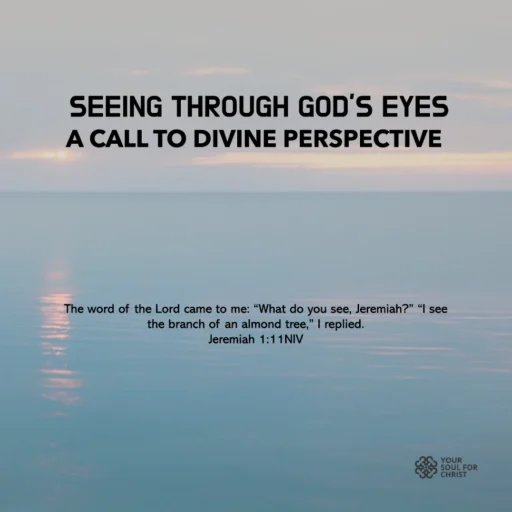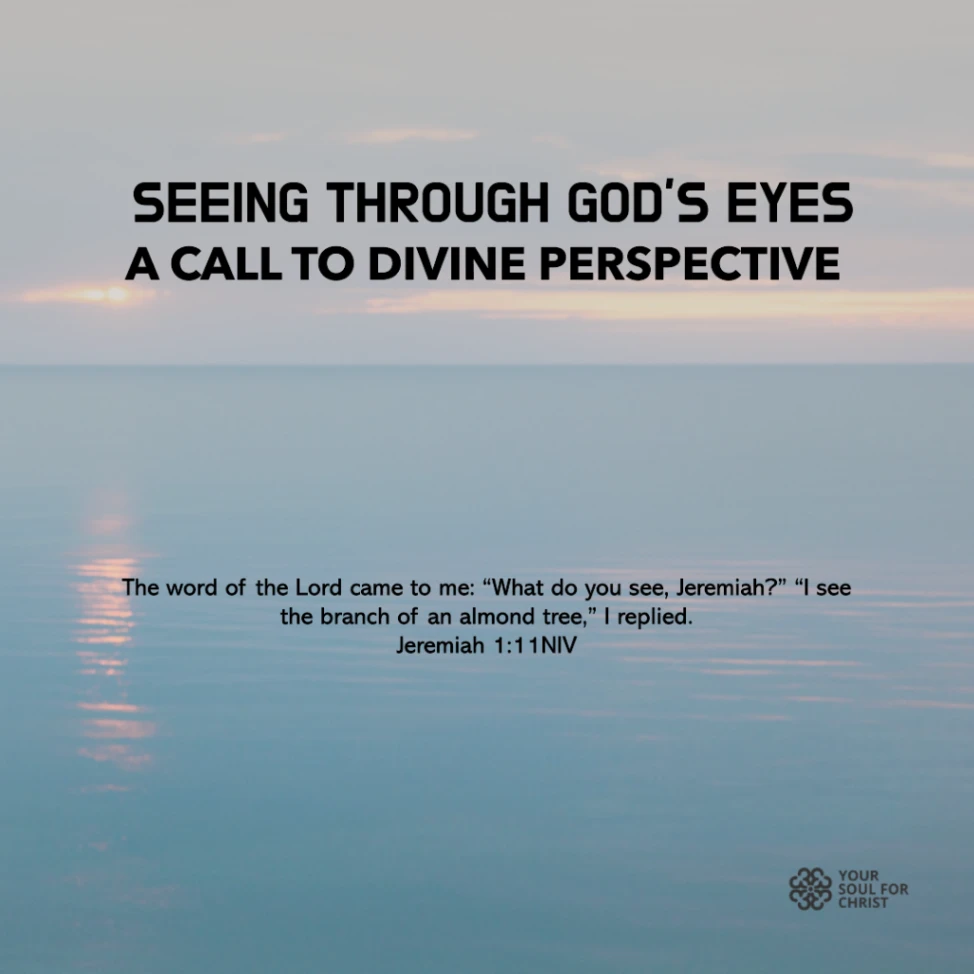The word of the Lord came to me: “What do you see, Jeremiah?” “I see the branch of an almond tree,” I replied. The Lord said to me, “You have seen correctly, for I am watching to see that my word is fulfilled.”
Jeremiah 1:11-12 NIV
The call to “seeing through God’s eyes” is one of the most transformative aspects of walking with Him. In these opening verses of Jeremiah’s prophetic ministry, we glimpse the weight and wonder of what it means to discern God’s heart accurately. God was not asking Jeremiah merely to observe; He was inviting him into alignment with a divine viewpoint.
When the Lord asked, “What do you see?”, it was not out of curiosity—it was a test of perception. God had something specific to reveal, and He wanted Jeremiah to see it rightly. This moment teaches us that spiritual vision is not about personal insight but about divine revelation. It is not enough to merely see; we must be seeing through God’s eyes.
This principle challenges the way we interpret what unfolds around us. When we encounter someone caught in sin, do we only see their fault? Or do we recognise a soul God longs to redeem? If our vision stops at the surface, we will likely respond with judgment. But when our hearts are aligned with God’s, we respond with compassion. We see beyond brokenness to the possibility of restoration.
Think also of those who have hurt us. Left to our own perception, we may see them simply as offenders. But seeing through God’s eyes compels us to perceive them as people in need of our mercy, grace, and perhaps even healing. God’s perspective is always redemptive—it leads us not only to forgive but to hope for transformation.
However, even the right sight must be confirmed by the One who gives it. Like Jeremiah, we must remain humble. God alone determines whether we have truly seen correctly. It is His affirmation, not our confidence, that validates our vision. “You have seen correctly,” He said—and that sentence carries more weight than any human applause or agreement.
This means we must cultivate a posture of attentiveness and teachability. It’s not enough to claim insight—we must keep returning to the Lord for clarity. Our spiritual maturity depends on being in constant conversation with Him, letting Him adjust and purify how we see people, situations, and even ourselves.
When we allow God to shape our vision, we become His vessels of truth, mercy, and love. Our lives begin to reflect His justice without harshness, His grace without compromise. Like Jeremiah, we grow into a prophetic people—not because we speak loudly, but because we see rightly.
Living It Out
Ask God today to help you begin seeing through God’s eyes. Invite Him to shape your perspective on others, on your circumstances, and on yourself. Pause before you respond to what you see—bring it to Him in prayer.
Let His Word and Spirit guide your understanding. In time, you’ll find your heart not only more aligned with His but your life a clearer reflection of His truth. And when He asks you, “What do you see?”, may His reply be the same: “You have seen correctly.”

